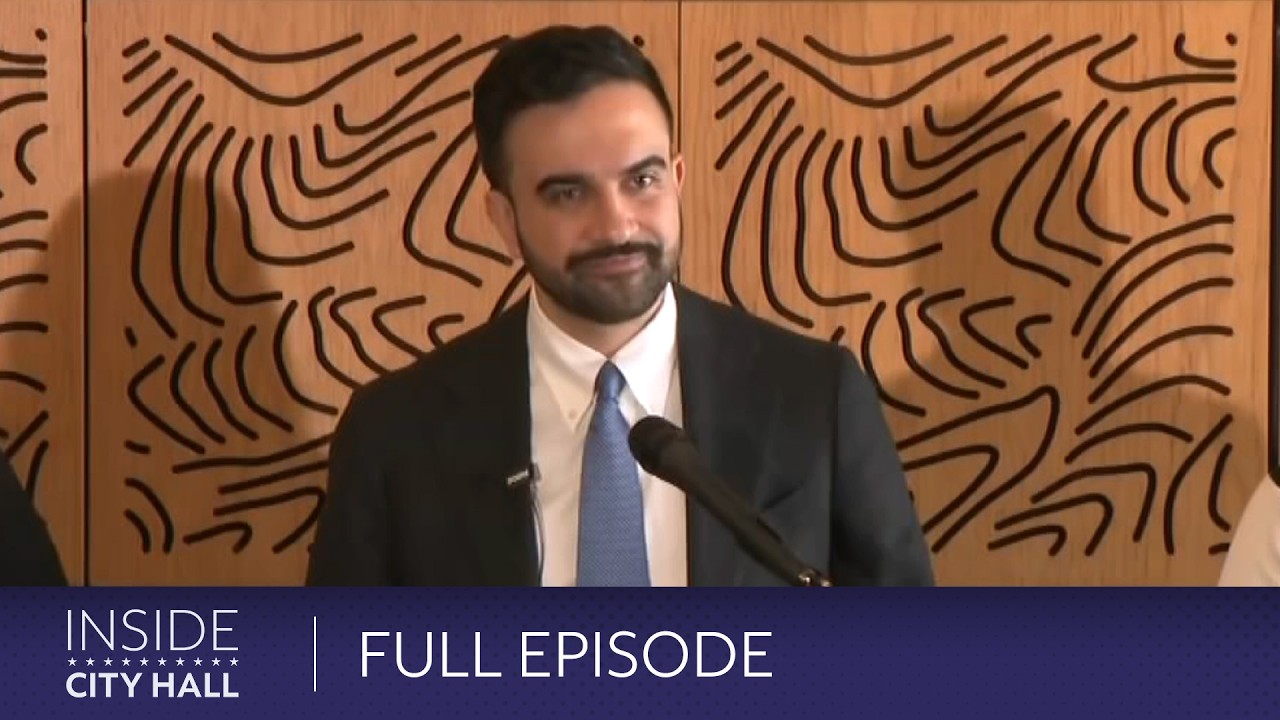The New York City Council voted on July 14, 2025, to boost protections for delivery workers, ensuring better pay, transparency, and safety for those delivering food, groceries, and other goods. This builds on past efforts to improve the fast-growing delivery sector. The Council also passed laws to support displaced tenants, increase transparency about deaths at Rikers Island, enhance oversight of NYPD investigations, and investigate environmental toxins from 9/11. These steps aim to create a fairer, safer, and more sustainable city for workers and residents alike.
NYC Council Votes on Wage and Workplace Protections for Delivery Workers as Another Step towards Improving a Sustainable Delivery Sector
Council also voted to strengthen support for displaced tenants and foster youth, increase transparency on Rikers deaths, extended or impeded investigations into NYPD, and 9/11 WTC environmental toxins
City Hall – Today, the Council voted to extend protections for all contracted delivery workers, including those delivering food, groceries, or other goods, to address pay, transparency, and safety standards. The Council also voted to pass legislation that provides support to displaced tenants, increases transparency around deaths on Rikers Island and in DOC custody, enhance DOI reporting on investigations into the NYPD, and requires a DOI investigation on information possessed by city government on environmental toxins produced by the September 11, 2001 terrorist attacks.
“Delivery workers provide essential labor, and it’s critical that our city continues to expand protections that advance their safety, health, and dignity to make our growing delivery sector sustainable,” said Speaker Adrienne Adams. “The Council is proud to continue advancing legislation that improves equity, safety and sustainability of the delivery sector for its workers and all New Yorkers.”
“When New Yorkers are displaced from their homes due to an emergency, the City must help them remain in or near their communities,” continued Speaker Adams. “Our passage of the Back Home Act supports families facing immense uncertainty to access greater stability. We also took a critical step forward in requiring transparency on deaths that occur on Rikers Island and under the custody of the Department of Correction so that we can better address the systemic failures that harm New Yorkers. Finally, the resolution we passed requiring an investigation into what information city government possessed on the toxins produced by the 9/11 attacks is transparency that our heroes, survivors and their families deserve.”
Expanding Workplace Protections for Delivery Workers
In recent years, the app-based delivery industry has rapidly expanded within New York City, as consumers embraced online shopping and delivery as a safe and convenient alternative to in-store shopping during the pandemic to supercharge the sector’s growth. In 2021, the Council passed a package of bills establishing minimum wages and working conditions for delivery workers who contract with third-party food delivery platforms, which were the largest entities employing contracted delivery workers at that time. Building on this previous legislation, the following bills seek to extend protections for all contracted delivery workers, including those delivering food, groceries, or other goods, and address pay, transparency, and safety standards. They are part of the Council’s efforts to comprehensively address concerns related to delivery app services and workers, including the Council’s recent passage of new laws to preserve caps on fees that third-party delivery services can charge restaurants and establish e-bike safety requirements for delivery services.
Introduction 737-A, sponsored by Council Member Shaun Abreu,would require third-party food and grocery delivery services to offer a tipping option of at least 10 percent of the purchase price on each food or grocery delivery order.
Introduction 738-A, sponsored by Council Member Shaun Abreu,would require third-party food and grocery delivery services to provide the option to tip before or at the same time an order is placed.
Introduction 859-A, sponsored by Council Member Shaun Abreu,would require delivery services to pay their contracted delivery workers no later than 7 calendar days after the end of a pay period. This bill would also require delivery services to provide each contracted delivery worker with an itemized, written statement that outlines their compensation no later than 7 days after the end of the pay period. Finally, this bill would require delivery services to keep such statements for at least three years and provide copies to contracted delivery workers upon request.
“Deliveristas deserve a clear understanding of how their pay is calculated, and customers deserve an easy and transparent way to tip,” said Council Member Shaun Abreu. “This legislation strengthens fairness and transparency for both workers and customers. I’m grateful to Speaker Adams for her leadership, to my colleagues for their collaboration, and to the Department of Consumer and Worker Protection for their thoughtful work on these bills.”
Introduction 1133-A, sponsored by Council Member Jennifer Gutiérrez, would extend food delivery worker protections to all contracted delivery workers retained to deliver goods for a delivery service. These worker protections would include requirements for transparently providing information, access to bathrooms, distribution of fire safety materials, and insulated delivery bags. This bill would also require the Department of Consumer and Worker Protection (DCWP) to study working conditions and determine a minimum pay rate for contracted delivery workers.
“I’m proud to move Intro 1133 forward with Council Member Nurse to close the loopholes that left thousands of delivery workers behind,” said Council Member Jennifer Gutiérrez. “Whether you’re delivering food, groceries, or goods—you deserve the same pay, protections, and oversight. These bills create a flexible, future-proof standard that covers all delivery apps, and makes clear that no platform gets to opt out of treating workers fairly. The gig economy moves fast, but so do we—and we’re not slowing down.”
Introduction 1135-A, sponsored by Council Member Sandy Nurse,would require third-party grocery delivery services to pay their delivery workers a minimum pay rate that would meet or exceed that set by DCWP. DCWP may adjust the minimum pay rate to the circumstances of grocery delivery workers.
“People should get equal pay for equal work, but that is not what’s happening with delivery workers today,” said Council Member Sandy Nurse. “Intro 1135 will right this wrong by bringing pay parity to tens of thousands of grocery delivery workers who effectively do the same job as their food delivery counterparts, but get paid much less and have fewer protections. This injustice perpetuates inequality, enriches apps, and makes our City even more unlivable for working class families. Enough is enough, and I’m proud to pass this bill today.”
July 14, 2025 New York City Hall , Manhattan
Sources: Council.nyc.gov , Big New York news BigNY.com














